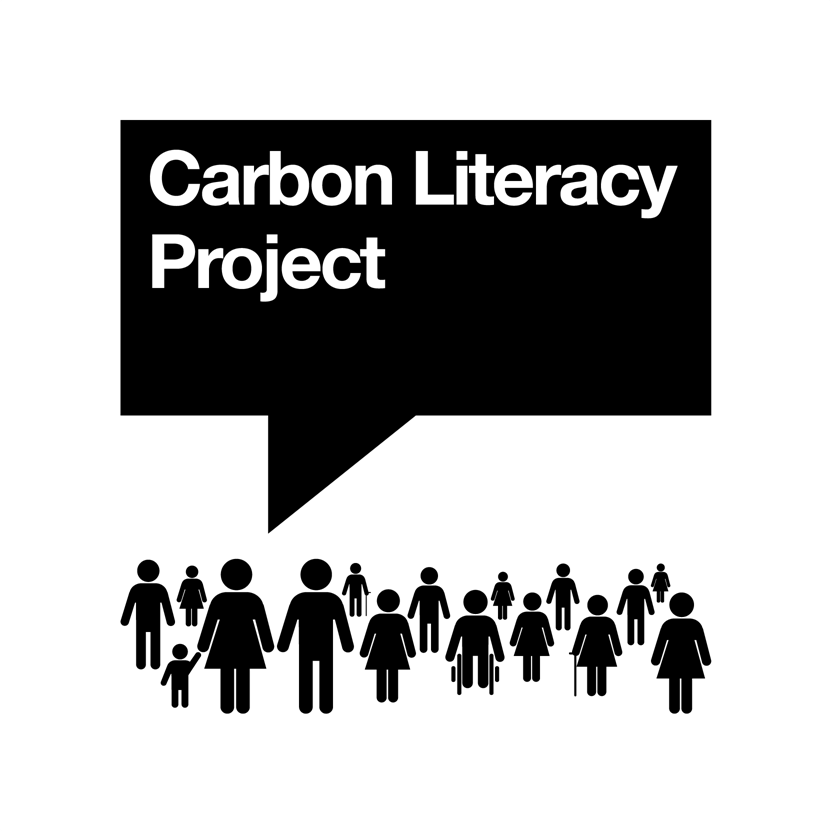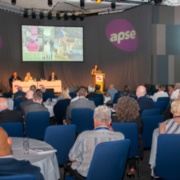Platinum power for APSE: Becoming a Carbon Literate Organisation
Finding new, sustainable forms of power is hot on the agenda as temperatures soared in July. Love it or hate it, the recent record-breaking heat is a symptom of rapidly increasing global temperatures and the climate crisis.
As a long-standing champion for climate action, the Association for Public Service Excellence (APSE) is the first dedicated local government organisation to achieve Platinum Carbon Literate Organisation status in the UK.
But what is a Carbon Literate Organisation and how can it help?
A Carbon Literate Organisation (or CLO) has to demonstrate, “An awareness of the carbon costs and impacts of everyday activities and the ability and motivation to reduce emissions on an individual, community and organisational basis.” The Carbon Literacy Project
Carb on Literacy training does just that. It explores the causes and impacts of climate change, as well as what we can do to prevent further unnatural global heating. The training also explores ways in which we can adapt to climate impacts and simultaneously address the inequalities we have in our societies.
Shouldn’t all public organisations be aware of the causes of climate change, the source of emissions and what can be done to stop this crisis getting any worse?
The scientific evidence is overwhelming. The weather we experience is governed by the Earth’s climate. Soaring temperatures, wildfires, winter storms and flooding from heavy rainfall are all symptoms of a changing and chaotic climate.
Throughout history, it’s true to say that, the climate has been inconsistent - there have been ice ages (with lower levels of CO2 in the atmosphere) and warmer interglacial periods (with higher levels of CO2 in the atmosphere). The climate has always changed. So why is it different now?
Power is the determining factor. We rely on coal, oil and gas – our fossil fuels – to power our world. These fossil fuels are laden with carbon dioxide (CO2) and other dangerous greenhouse gases, which collect in our atmosphere and trap heat close to the Earth. Since the beginning of the industrial revolution, we have released billions of tons of greenhouse gases causing the planet to heat up.
Our average global temperature is now more than 1o above pre-industrial times and this unnatural global heating is as a result of human activity. However, this doesn’t just affect us, it affects all living things, so we need to invest in our ecological systems and biodiversity at the same time as tackling the climate crisis. This is about survival. Humans have created the problem and humans have the power to fix it.
Power is the key. How we use our power matters. The decisions we make across public services today, not only impact on the people living in our communities right now, but they affect the lifestyle and choices of future generations.
The power of our decisions and actions will help us to tackle the major infrastructure and capital challenges of addressing the ways in which we power our world into the future. To have any chance of getting to net zero we cannot continue to rely on the finite supply of fossil fuels. The source of power and how we use it from now on, will influence the lives of future populations across the globe.
Some would argue that there isn’t any point taking climate action, unless all countries of the world act together. This is just a convenient tactic to delay. If we all took that view, nothing would improve. Instead, let’s be leaders in this. With a spirit of optimism and innovation, let’s understand the challenge and raise our heads above the parapet, empower each other and do what we do best, in local government: deliver results equitably for the benefit of our communities. we need to use our power wisely to protect the health and wellbeing of all members of society and their decedents.
APSE has been a champion for climate action for decades and is walking alongside local authorities on the path to net zero. As a Platinum accredited Carbon Literate Organisation (CLO), APSE can now proudly wear the visible ‘badge’ that showcases our commitment to Carbon Literacy training (100% staff trained) and our commitment to supporting, fostering and maintaining a low carbon culture.
There are four tiers of CLO accreditation, and the criteria for each are explained in detail on the Carbon Literacy Project webpages, where you can also learn about the process.
There are lots of co-benefits of climate action and Carbon Literacy training.
“Carbon Literacy training makes a tangible contribution to staff well-being, to the effectiveness of workplace learning, to the employability of learners, to the efficiency of work-places, to the competitiveness of companies – and of course to our collective role in tackling climate change.”
The Carbon Literacy Project
We have been delighted to support UK local authority staff to become Carbon Literate and to support some in pursuing CLO ststus, including Dacorum Borough Council, Denbighshire County Council, Wirral Borough Council and Warrington Borough Council.
This is not an easy path, but it is incumbent upon us to address the power balance and work together to create a more sustainable low carbon culture.
We offer a full suite of certified Carbon Literacy courses, designed to meet the needs of local government. We deliver them as open and in-house options, both onsite and online:
- Carbon Literacy for Local Authorities
- Carbon Literacy for Leaders and Managers
- Carbon Literacy for Elected Members
To find out more about our Carbon Literacy training, or if you have good practice to share, please contact us on [email protected].
.jpg)



.png)



.png)